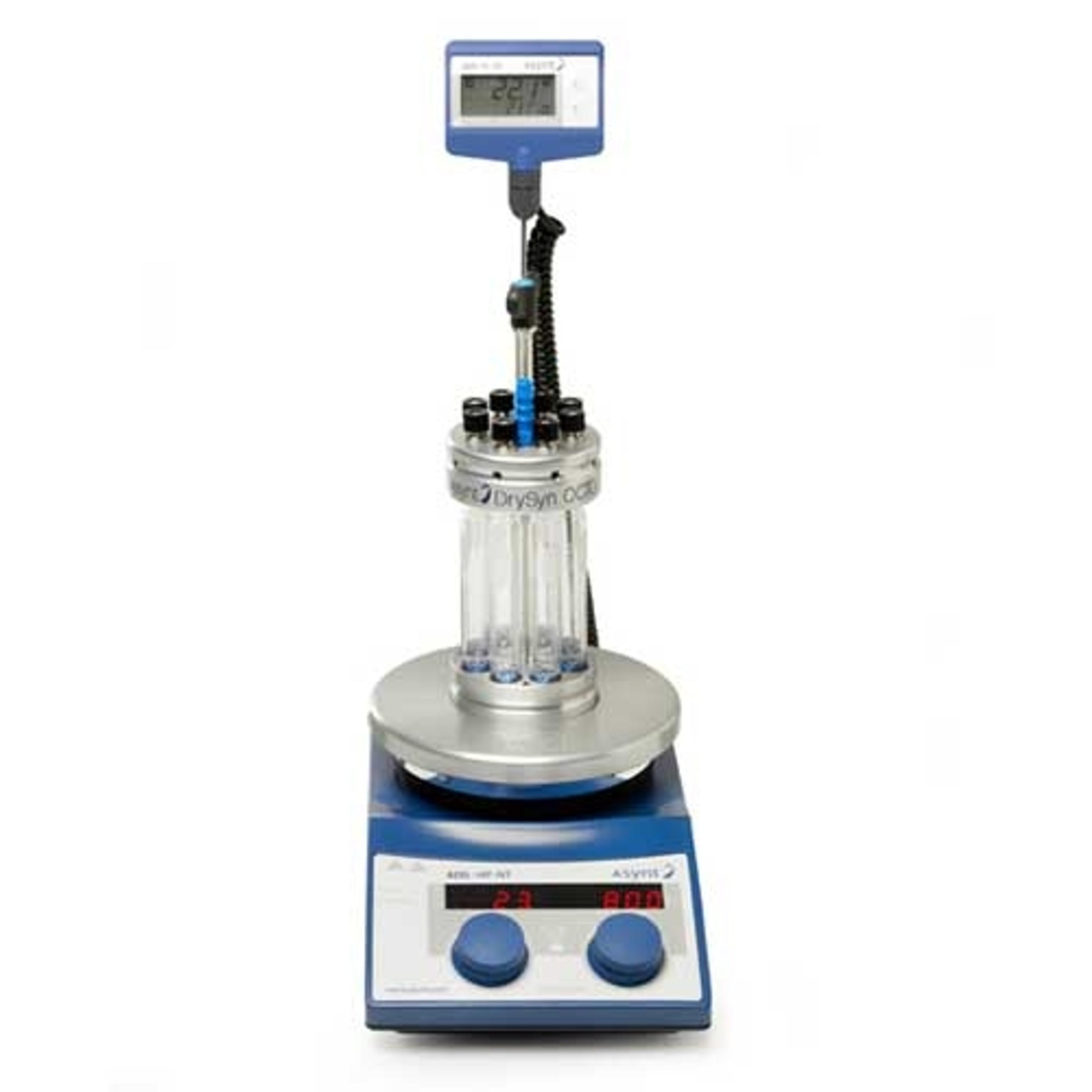HydRegen scientists find novel next-generation biocatalyst
Using the Asynt DrySyn OCTO reaction station, HydRegen researchers have found a cleaner way to manufacture chemicals
11 Oct 2021
UK-based HydRegen are using a DrySyn OCTO reaction station from Asynt to help develop a next-generation biocatalyst system
HydRegen spun out from the Vincent Group in the Dept. of Chemistry at the University of Oxford in March 2021. They are developing novel and sustainable strategies for using the growing toolbox of NADH-dependent redox biocatalysts in chemical synthesis. Their system allows chemical manufacturing to harness the precision of biology with the efficiency of catalytic hydrogenation, allowing you to replace your heavy metal catalyst for highly selective hydrogenation reactions or decarbonize existing redox biocatalysis processes, all while operating within existing continuous flow hydrogenation reactors.
Dr Sarah Cleary, Chief Scientific Officer at HydRegen commented "We invested in a DrySyn OCTO because I had previously used the system and loved how it gave me the ability to simultaneously screen eight separate reaction variations under a controlled atmosphere, temperature, and means of agitation, thus advancing the process of biocatalyst development in a reproducible fashion. The DrySyn OCTO installed at HydRegen has been an incredibly useful tool for us. Because we’re using enzymes and don’t need pressurised hydrogen, the OCTO is perfect for screening catalysts and reaction parameters.
It has definitely helped expedite our results and we are confident in those results thanks to the ability to carry out processes in triplicate under identical conditions in the OCTO.” Dr Cleary added "Because we didn’t want to use hydrogen cylinders in our lab, for various safety reasons, being able to hook up our DrySyn OCTO to a benchtop hydrogen generator also supplied by Asynt was very convenient. It’s been super simple to set up and to use and it’s small footprint means it doesn’t take too much valuable space in our fume hood!".
Want the latest science news straight to your inbox? Become a SelectScience member for free today>>

